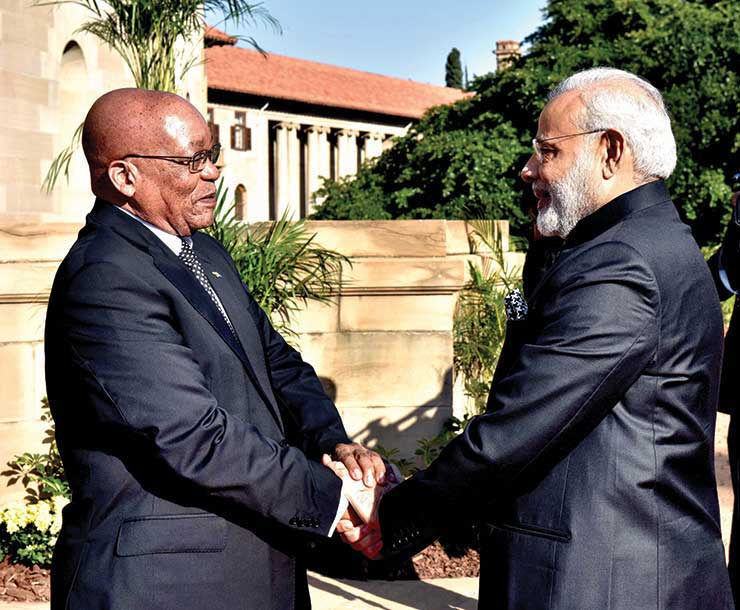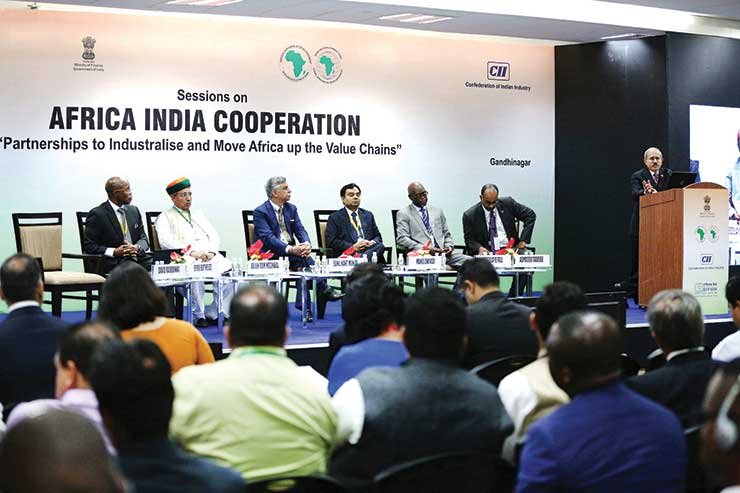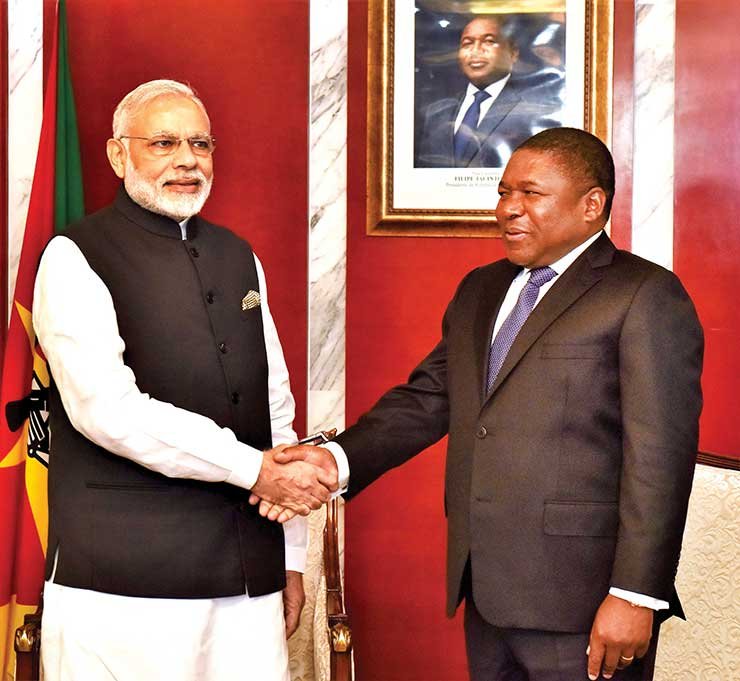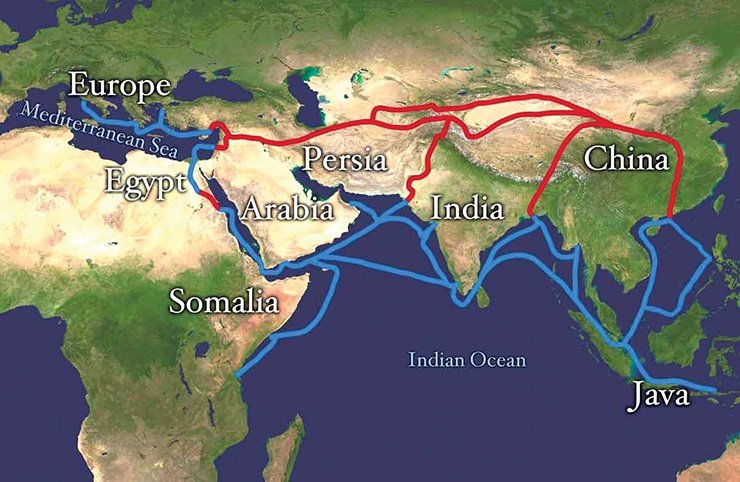
The geopolitical aims of a country are largely based on its long-term goals. The five vital components around which the geopolitical aims should be woven are robust economy, diplomacy, technology, human resources development and military diplomacy supported by the strong military. These five arrows in any government’s quiver need to be used in concert. Their application merits constant review as the nation state moves to become a regional/ global power. India is currently poised as the regional power with an outside reach in the global arena. Looking at the current scenario, are these fives arrows in the Indian quiver poised correctly?
Global Environment
This year the Wuhan virus/ COVID 19, a pandemic of humongous magnitude has engulfed the entire world. It continues to infect millions, and has caused death to over 400,000. To control the blitzkrieg pace of the virus, the entire world went into lockdown with catastrophic effect on the global economy. According to the International Monetary Fund (IMF), in 2020 the world economy is expected to shrink by three (3) per cent. It would be the steepest fall since the Great Economic Depression of the 1930s.
India and its Geopolitics
The Indian GDP growth has been declining from 8.2 per cent in 2015 to near five per cent in 2019. With India going into lockdown 1.0 to 4.0, it is now expected to grow at 4.2 per cent. Compounded by cyclones Amphan and Nisarga, and the Locust attack it could even dip further. Besides, India is faced with the Chinese intrusion in the strategically important Galwan Valley of Ladakh – leading to the ongoing stand-off between India – China. India’s relationship with Nepal has hit a new nadir, with the latter claiming Lipulekh, Kalapani and Limpiyadhura. There are clear indicators that both our economy and diplomacy need fresh impetus.
Prime Minister Narendra Modi, from his day one in the office, placed India’s immediate neighbours First. He also gave a push to propel India’s geo-political and geo-economic projection with special focus on West Asia, South East Asia (Look East Policy), the US and the EU. At the same time, India decided to stay away from the Regional Comprehensive Economic Partnership (RCEP) propelled by China and its One Belt One Road (OBOR) initiative. The shows held by the PM in the US, UK and other countries propelled India’s image abroad. It also played positively on the psychology of the Indian nationals at home and abroad, but that is about all!

The ‘Make in India’ project launched in 2014 didn’t yield much results. Now, the new slogan is ‘Atmanirbhar’ Bharat. According to the RBI Report, FDI investment in manufacturing has declined from US$9613 million in 2015 to US$7919 million in 2019. Despite fresh impetus to the ‘Look East Policy’ and the ‘West Asia Focus’, our GDP growth has declined and the unemployment is at all-time high. Coupled with it is the ongoing discord with Nepal. These do not augur well with our two vital components i.e. economy and diplomacy! India needs to go beyond the road shows abroad and prioritise ‘Look Africa’ which is on the ascendency.
Indo-Africa Connection and Developments
The economic and cultural link between India and Africa dates back to the pre- BC era. The political connection was established during the pre-Independence era. After Independence India nurtured this ancient relationship, albeit rather slowly. Today, Africa is home to five of the top 30 oil producing countries in the world. It is an alternative source of energy for India. Countries like South Africa, Zambia, Zimbabwe, Namibia, Angola, Mozambique and Congo are endowed with large deposits of minerals including rare and strategic metals/ minerals. According to the IMF, in 2019, Africa became home to some of the fastest growing economies in the world. China and other world powers are investing heavily in Africa. China’s trade with Africa is three times that of India.
India needs to catch up with urgency. In 2014, the Indo-African trade valued at US$78 million. It declined to US$ 62.66 million in 2019. India needs to upgrade its Technical and Economic Cooperation (TEC) tools for Africa with a fresh outlook. In the last couple of years alone, apart from several ministers, President, Vice President and the Prime Minister made 29 visits to various African countries. Did it impact our economy significantly? Apparently, the diplomatic/ economic follow through is lacking. With the Fourth Indo- African Summit scheduled in September 2020, there is a need for out of the box thinking to take it beyond the high decibel projection and make it advantage India-Africa. Human resources development and technological advancement are the two fields which would be the key for any substantial growth in future.

Defence Diplomacy
The fifth arrow, the defence diplomacy has three cardinal principles – defence training, defence cooperation and defence production. It is aimed to prevent conflicts, develop long term allies and build capacity for friendly nations. India has a longstanding relation of military training with half of the African nations. Indian training teams were deployed in countries viz Seychelles, Botswana, Zambia, Lesotho and Tanzania. India has also been providing training to a large number of officers from African countries in our military training institutes. Many of the current heads of African States or the Chiefs of their Armed Forces were trained in India. It gives us the leverage to propel our geo-political and geo-strategic interests in the region.
India has been a major contributor to the UN peacekeeping missions. A number of Indian contingents/ observers have been deployed in many African nations and other parts of the world. In 2011, India pledged US$2 million in support of the ‘African Peace and Security Architecture’ for peace keeping missions under the African Union. While addressing the Ugandan Parliament in July 2018, PM Modi mentioned that India will continue to support African nations in combating terrorism, military training and capacity building. He emphasised that India’s vision of Indian Ocean Security including the eastern shores of Africa is based on cooperation, inclusion and growth for all in the region. India’s cooperation with the international community and the African nations based on the Eastern shores to mitigate the menace of piracy (non-state actors) is a case in point.

Conclusion
The geo-strategic importance of Africa for the security of the Indian Ocean Region is well established. The existing economic, political, cultural and military cooperation between India and Africa provides the ideal platform for the inclusive growth and security of both. The robust growth of Indian economy and the indigenous defence industry are the vital cogs in the wheel. India needs to move away from being the second largest importer of defence equipment to a defence supplier. Africa is potential market. It would help India to further strengthen its military, and assist our friends in Africa, in capacity building and developing inclusive peace and prosperity.
–The author is an Army veteran and New Delhi-based security and strategy analyst. His literary works have been carried by national dailies and periodic journals.








